There is no denying that men who regularly use a toner will see a significant improvement in their skin.
However, what do you do if you run out or don’t want to spend the money on a toner?
Turn to an alternative!
Luckily, a few options can help achieve similar results. These alternatives can provide various benefits, including improved skin complexion, reduced hyperpigmentation, smaller pore size, and providing a natural glow to your skin that’ll make you look younger.
Before we list out the substitutes, there are a few things you should know about toner:
Understanding What Toners Are
Toner is a liquid solution used on the face to restore the skin’s natural pH balance and remove excess or impure oils, dust, and dirt. You must choose an ingredient or product that delivers similar benefits when finding a suitable replacement.
Many award-winning toners contain a variety of ingredients, including:
- Glycolic acid: This water-soluble chemical exfoliant, alpha hydroxy acid, lifts oil from the skin to help unclog pores and remove dead skin cells.
- Salicylic acid: Also known as beta hydroxy acid (BHA), this ingredient helps reduce blemishes caused by acne and keeps your skin clear and healthy.
- Vitamin C: This ingredient provides a brightening effect and helps reduce the appearance of scars, dark spots, and wrinkles.
- Witch Hazel: This multi-faceted ingredient is an astringent like alcohol, but without the drying effect, and provides antioxidant, anti-inflammatory, and antiseptic benefits.
- Humectants: From glycerin to hyaluronic acid, these ingredients lock in hydration, helping your skin stay healthy and soft.
- Aloe Vera: This popular skincare ingredient helps soothe and hydrate the skin while providing antioxidant and antiseptic benefits.
Knowing what these ingredients do, you are better equipped to find and perhaps blend an alternative that can substitute a toner.
1. Rose Water
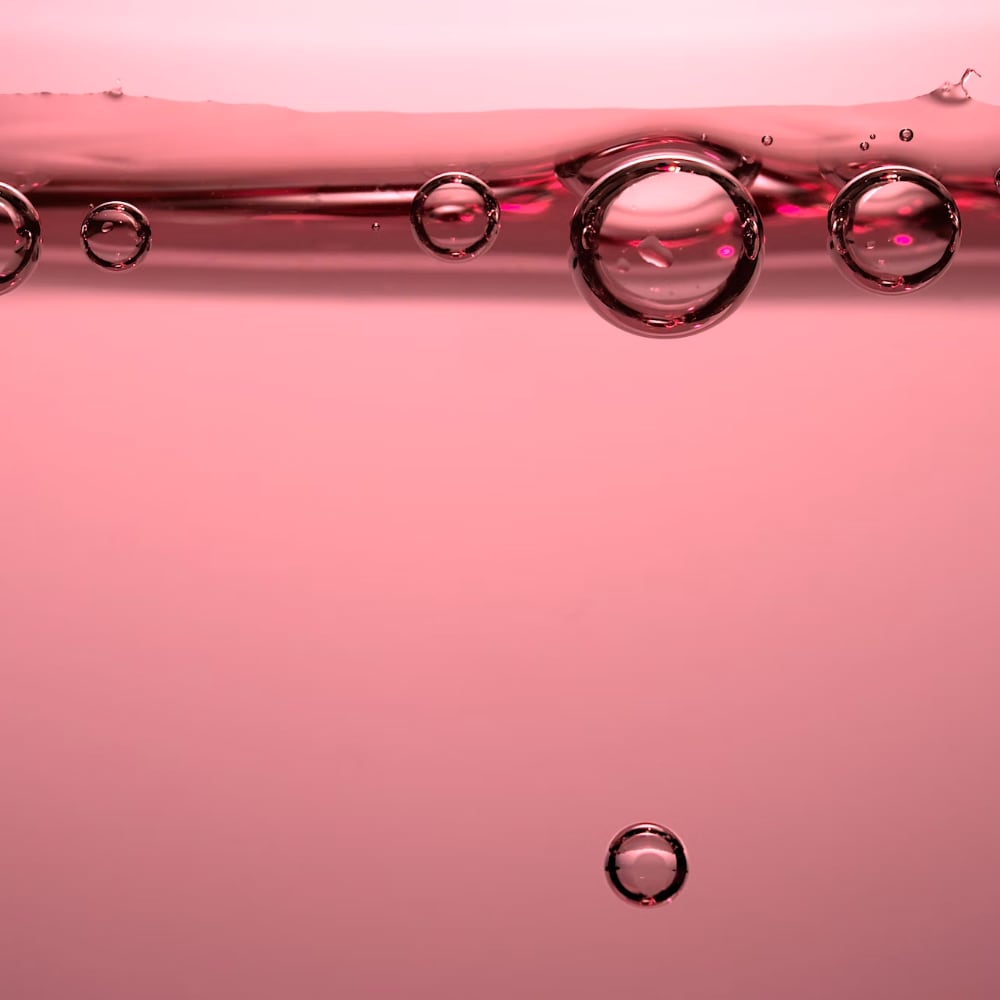
Rose water is an excellent substitute for a toner that can help revitalize the face and create a beautiful, healthy-looking complexion. In addition, rose water is widely used in skincare products as an anti-inflammatory agent. This ingredient may help with soothing the skin when applied topically, reducing redness and irritation (source).
Using rose water instead of toner is a safe and effective option that can help tone and hydrate the skin. Pour some of the rose water into your hands and gently pat it on your face until it is fully absorbed.
2. Aftershave
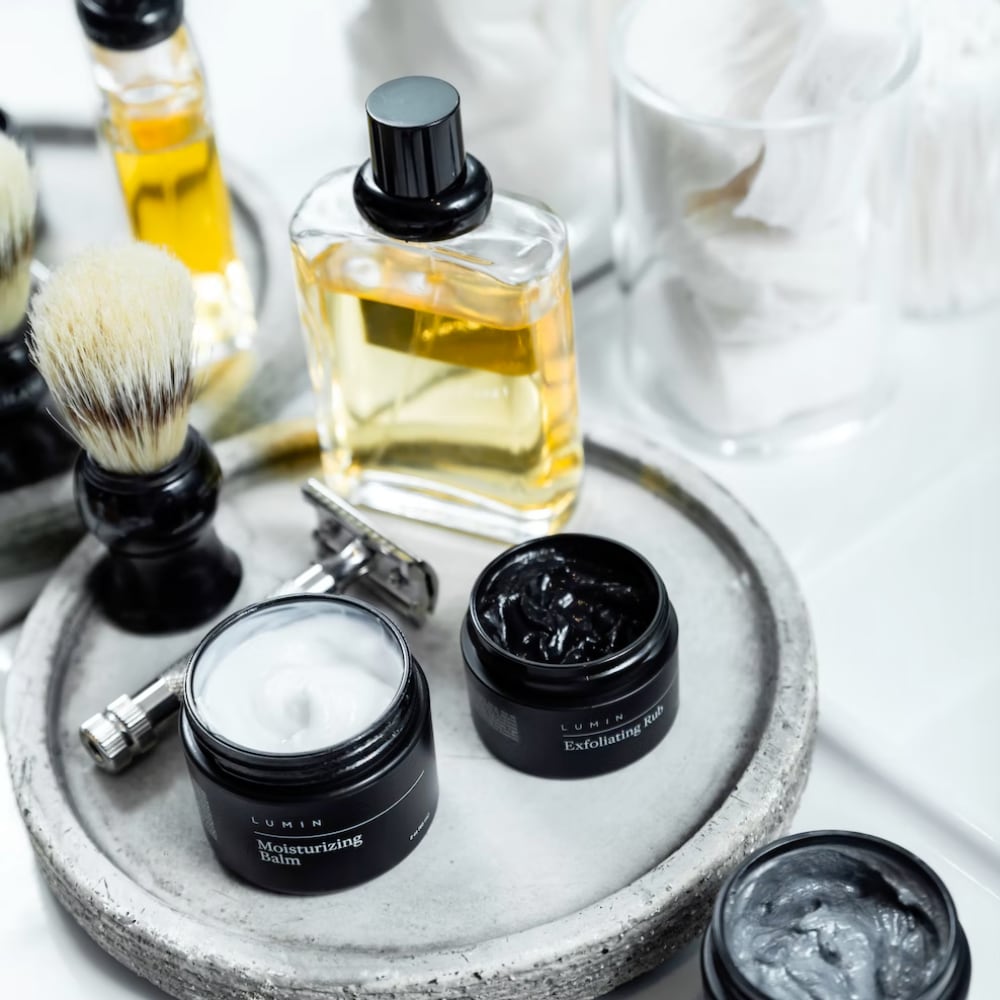
If you shave daily or are really into wet shaving, you may have a quality aftershave splash or balm in your medicine cabinet. A well-made aftershave doesn’t contain alcohol and likely contains a natural astringent, like witch hazel, and a host of other skin-nourishing ingredients.
Aftershave can provide excellent results when used as a toner, as it helps to firm, tone, and hydrate the skin. It can also help to reduce razor bumps and skin irritation. Simply dab a little aftershave on a cotton pad or directly on your hands and then rub it on your face until fully absorbed.
3. Witch Hazel

The active ingredient found in many boutique face toners is witch hazel. The reason is that witch hazel is a natural astringent and toner used to help soothe, protect, and revitalize skin for centuries. It is extracted from the leaves and bark of the Hamamelis virginiana shrub. It has various benefits for the skin, including cleansing and moisturizing properties, antioxidant activity, and anti-inflammatory benefits.
When you apply this after cleaning your face with your preferred face wash, the witch hazel will reduce the appearance of redness, blemishes, and acne. Witch hazel contains tannins that help to tighten the skin, reduce excess oil, and reduce the appearance of wrinkles.
Regarding substitutes, there is no beating a simple application of witch hazel to the face!
4. Aloe Vera
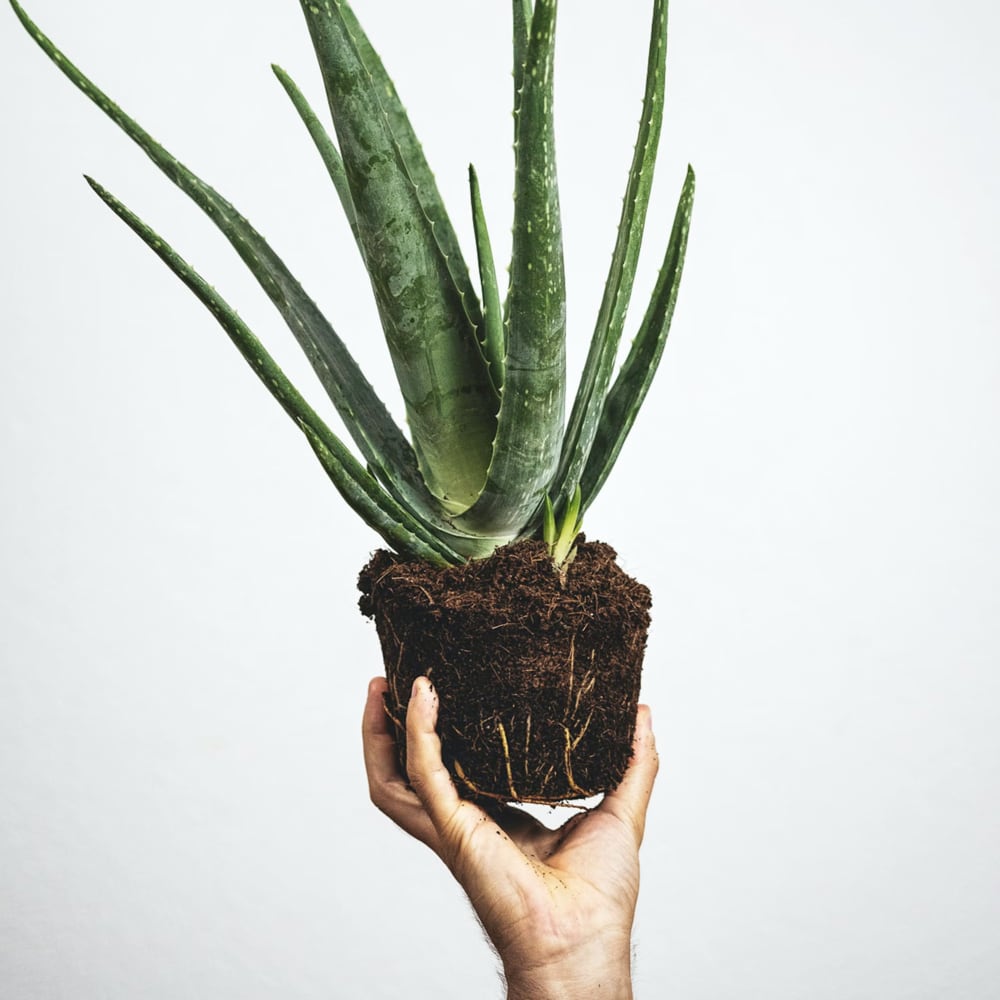
Synonymous with sunburn relief, aloe vera is a powerhouse of antioxidants, vitamins, minerals, and enzymes that can help soothe and nourish the skin. Like splashing a luxurious face cream, aloe vera will provide a wonderful sensation that’ll have you wondering why you weren’t doing this sooner.
Men of all skin types can benefit from aloe vera gel with a comedogenic rating of 0 (meaning it’ll never clog your pores). However, one downside to this alternative is that it focuses more on soothing and moisturizing and not necessarily deep cleansing as a toner would – so you may want to use an exfoliator before applying aloe vera.
5. Apple Cider Vinegar
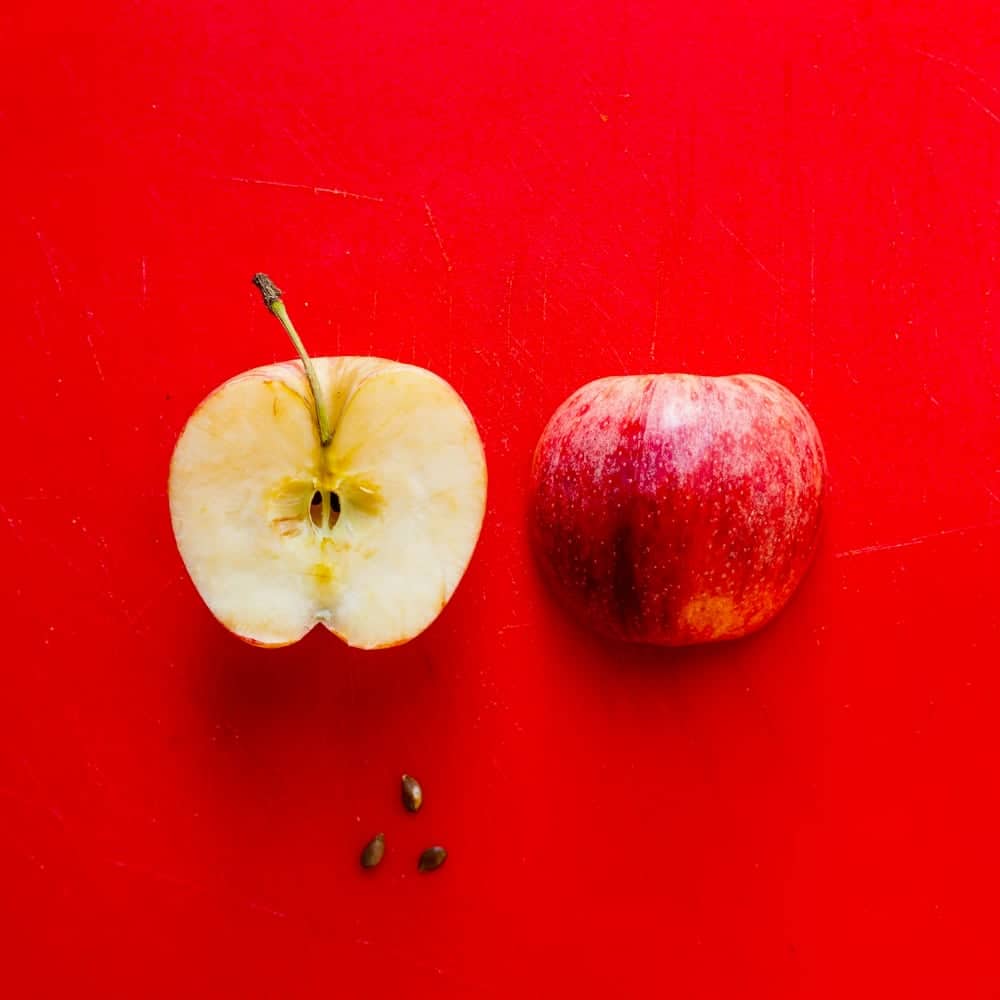
Apple Cider Vinegar is well known for its culinary uses but can also be used as a natural toner. It contains acetic acid, which helps restore the skin’s pH balance – which is a critical reason you should be using a toner in the first place.
However, you must be careful here; you don’t want to apply apple cider vinegar directly to your face – it must be diluted first. We recommend a ratio of 1 part apple cider vinegar to 2 parts of purified water.
6. Tea (Green Tea or Chamomile)
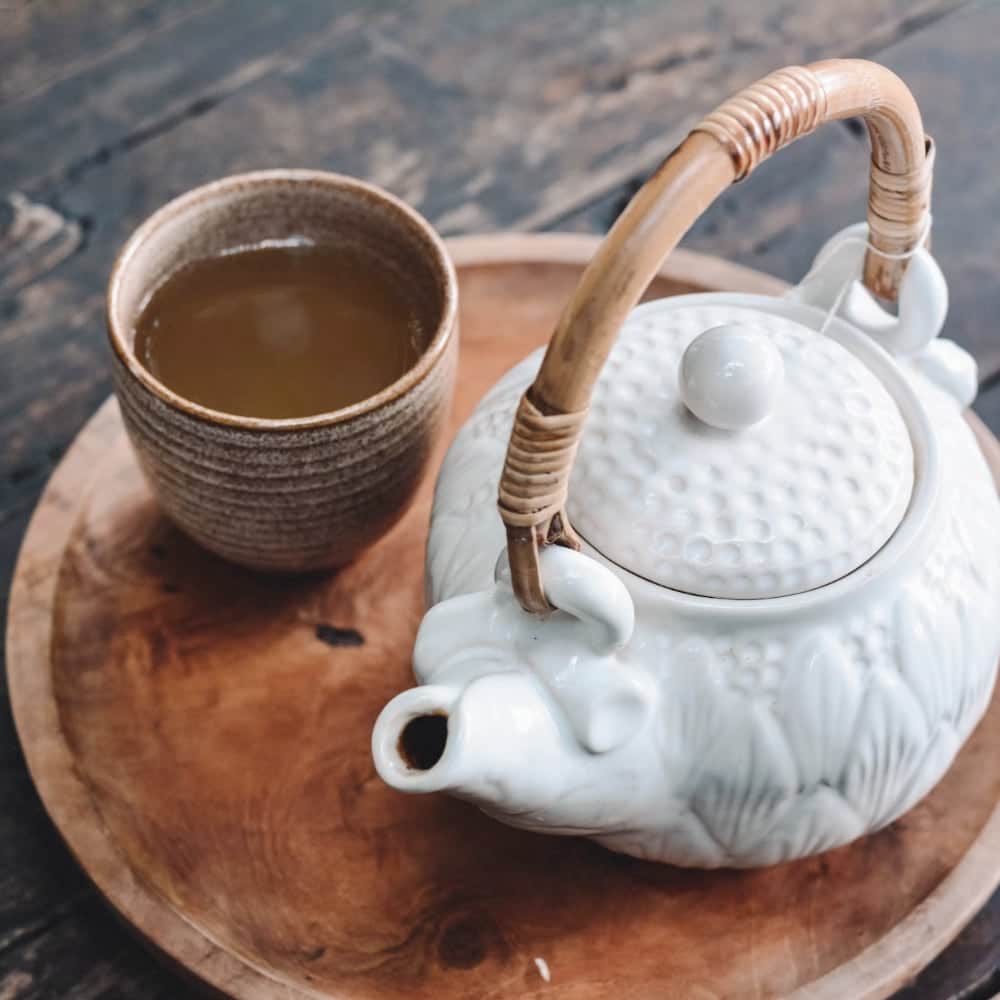
Packed full of antioxidants, tea such as green tea or chamomile can be used in lieu of a toner. Green tea, in particular, helps to fight free radicals and reduce inflammation. In addition, chamomile is known for its calming and soothing properties – similar to aloe vera.
You’ll want to make sure it is well-diluted before applying. Some skincare blogs recommend a spritz application rather than a cotton pad application.
Additives to Your Toner
Given that toners are multi-dimensional products, it would only make sense that additives can be a key component to any toner substitute. Some of the most common additives include:
- Essential Oils: From sandalwood to tea tree oil, the varieties of essential oils are endless. However, there is a lot of uncertainty about their effectiveness and safety. We recommend doing your research and a patch test before using any essential oils.
- Acids: Whether it is an AHA or BHA, acids added to any toner will effectively combat oily skin, acne, and blackheads. Those with sensitive or dry skin will want to skip this additive.
- Vitamins: Vitamin C, Vitamin E, and Vitamin B5 are all popular additives to toners. Vitamin C is known for its brightening effects, Vitamin E is a powerful antioxidant, and Vitamin B5 is known for its moisturizing properties. You can often pick these up online or at a natural food store (i.e., Whole Foods).
- Humectants: For the older gentlemen, consider adding a humectant or two. It’ll help to lift and tighten the skin and reduce the appearance of wrinkles. Some popular humectants include glycerin and hyaluronic acid. But, of course, if you plan to use a face cream after toner application, this could be skipped.
Frequently Asked Questions
Here are a few common questions folks have when trying to replace their toner with a DIY alternative.
What are some risks of using a do-it-yourself toner?
The biggest risk of using a toner substitute is an allergic reaction. Always do a patch test before applying any toner substitute to your face. We recommend either a small dab behind the ear or on the inside of the elbow – let it sit for several minutes and see how your skin reacts. If irritation, do not use.
Can a homemade toner be a replacement for a store-bought toner?
Some grooming products, such as beard balm, beard oil, etc., are easy to make at home and provide equally effective results as their commercial counterparts. However, with toners, it will be hit or miss. If you are happy with the results of your substitute, then consider yourself lucky and keep using it. If not, you may want to return to your store-bought toner.
Conclusion
When improvising a homemade or substitute toner with a commercial toner, it is important to carefully evaluate how your skin receives the toner. We hope this list of alternatives helped find a quick and easy substitute for your toner until you place your next order.